16 Dec Mayuri Sisodia
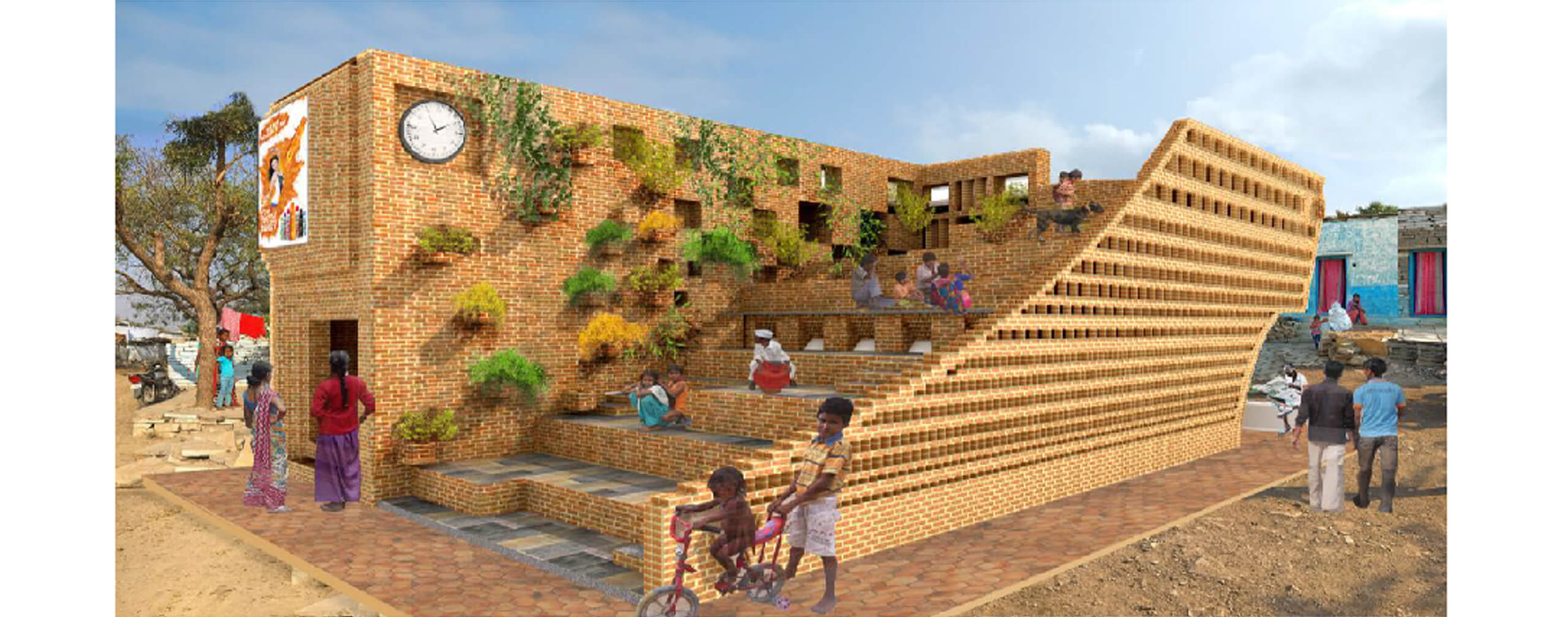

This Manifesto initiates a new discussion on nature of infrastructure, where they are not universal
For WID 2020, we are submitting an ongoing project from the Studio titled ‘The Toilet Manifesto, Case on Mundane Infrastructures’. The Project started as a Travelling Exhibition demonstrating 10 Public Toilet Typologies, Currently most of the Typologies are under construction at 35 Sites within Rajasthan.
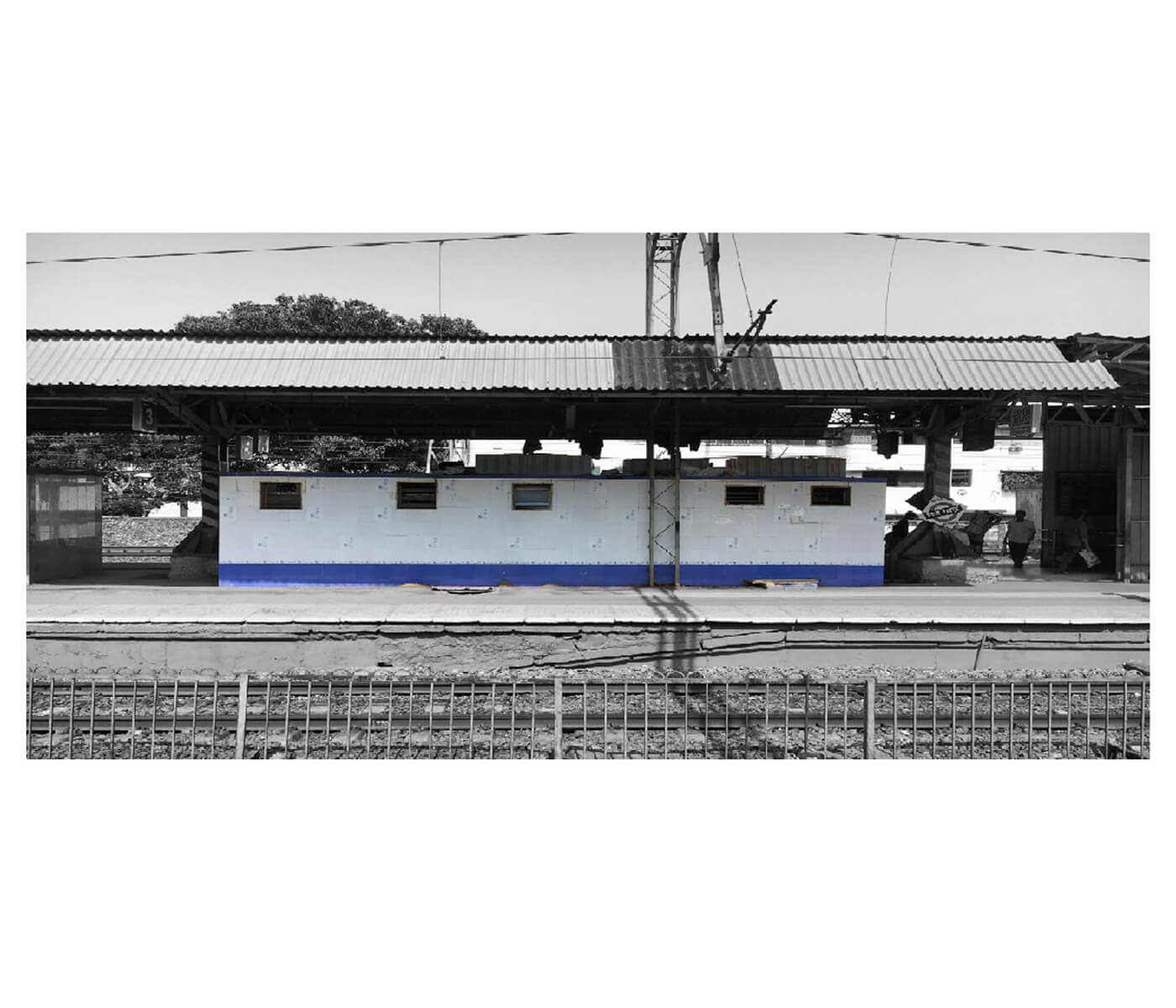
The Manifesto Studies the state of our most mundane Infrastructure i.e. A Public Toilet & develops 10 diverse imagination of this building type as a Sensitive Public Building grounded in diverse contexts of our cities & villages.
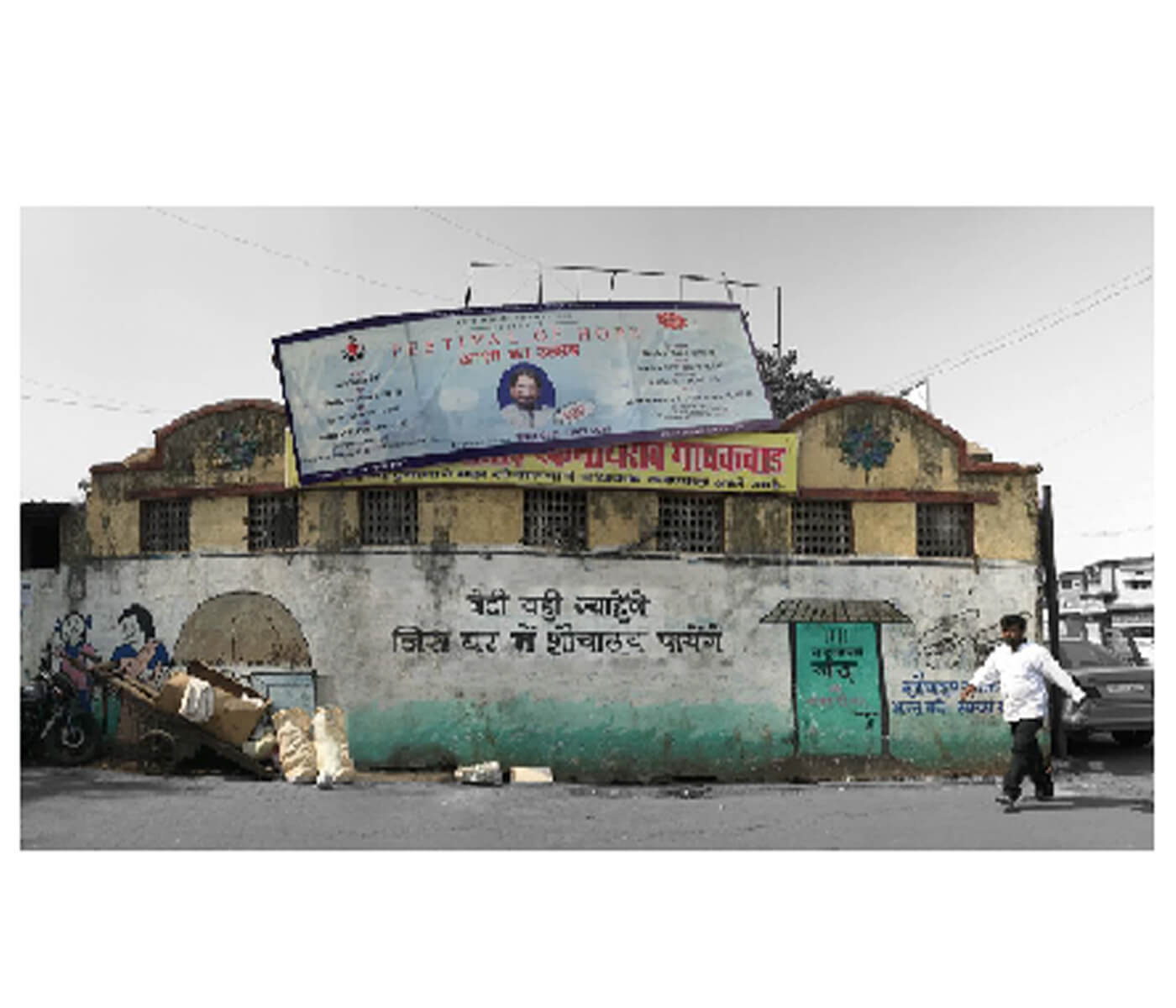
In the Past, we have alwaysimagined Public Toilets as an Engineering or Plumbing system that has no relationship with the human body, community and the environment around it. This Manifesto initiates a new discussion on nature of infrastructure, where they are not universal problem solving solutions but are holistic public spaces integrated with everyday lives of people.
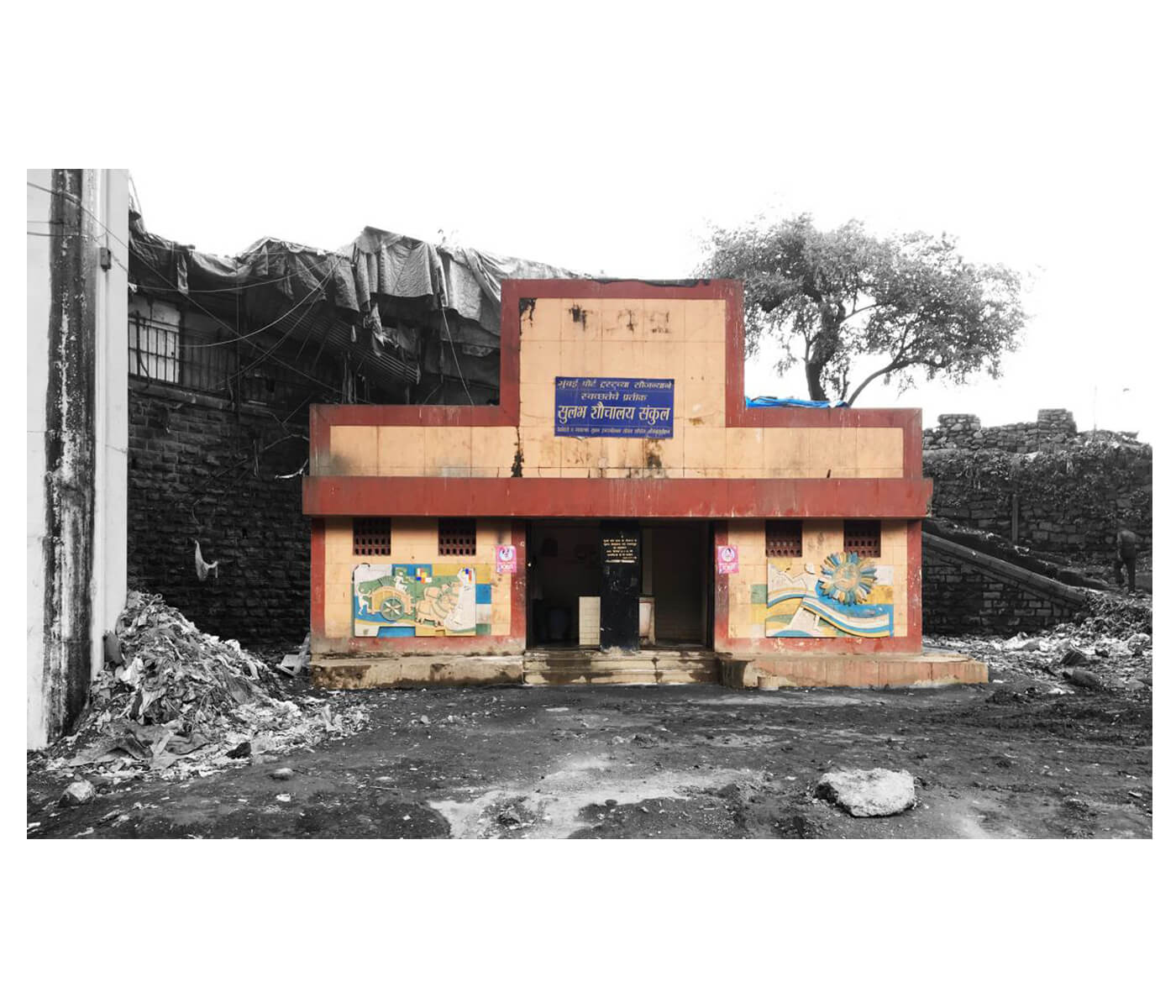
We called this exhibition ‘The Toilet Manifesto’, very ironic term because there was a manifesto for something as mundane as Toilets. The primary focus of the Manifesto was to design Public Toilets as Public buildings that are joyful and that treat all the citizens with love, respect & dignity.
“The Design is used as a medium to transform these mundane programs of everyday into holistic experiencesthat offer a good quality of life to all the citizens. “
Currently, Our Toilet Typologies have grown from 10 to 25 & have found their sites in various cities / Villages in India.
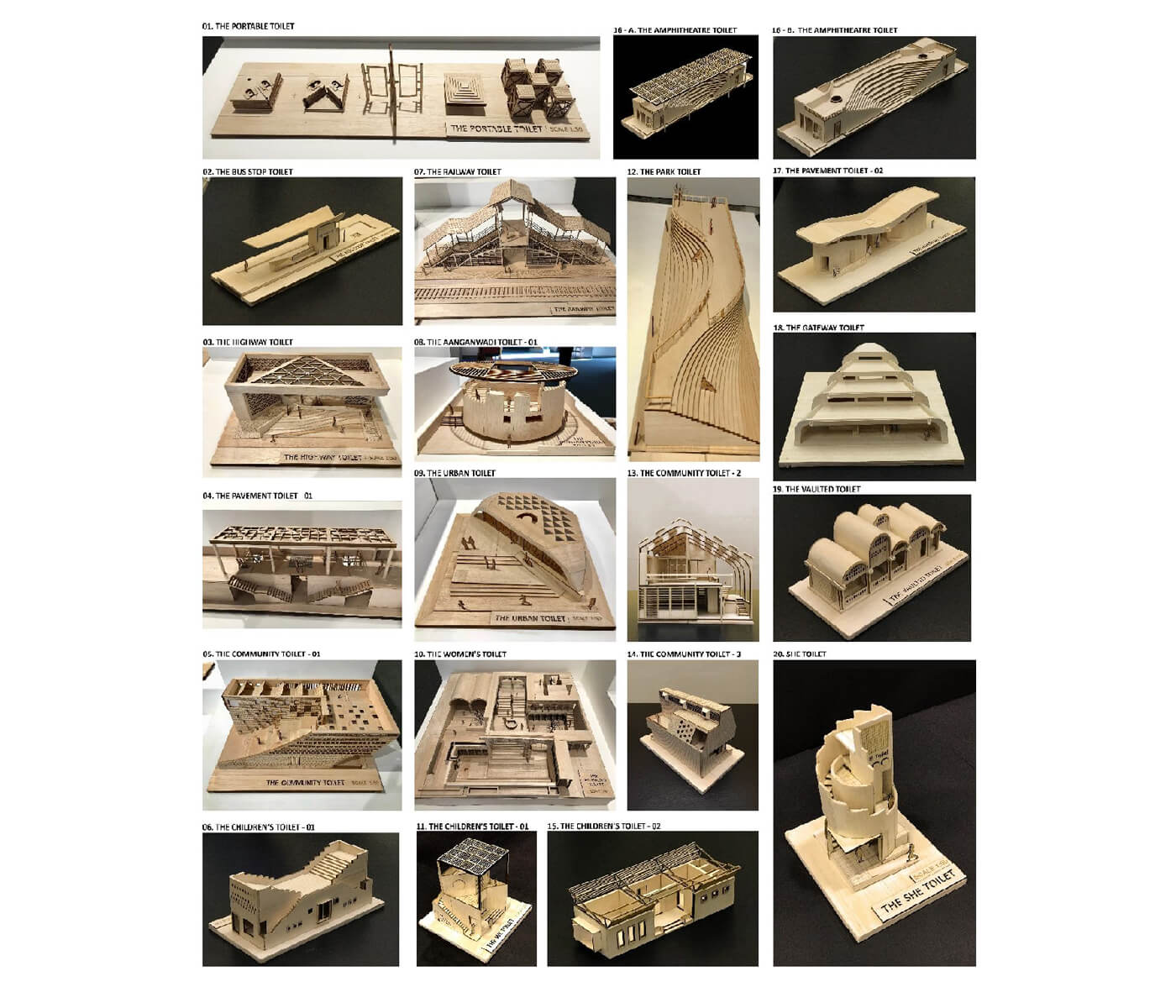
The 10 Public Toilet Typologies we initially designed were: 1. Community Toilets: Public Toilets for Informal Settlements. 2. Aanganwadi Toilets: Public Toilets for rural child and mother care centre. 3. Railway Toilets: Public Toilets for Railway platforms. 4. Bus Stop Toilets: Public Toilet as a part of Bus Stop Shelter. 5. The Urban Toilet: Public Toilets for plots reserved for city amenities. 6. Highway Toilets: Public Toilets for travelling population on highways. 7. Park Toilet: Public Toilets for Parks, Gardens and Maidans. 8. Women’s Toilets: Sanitation model for women in villages. 9. Pavement Toilets: Public Toilet for Pavements. 10. Temporary Toilets: Public Toilets for large scaled public gatherings (such as fairs, festivals, rallies) and Emergency Conditions.
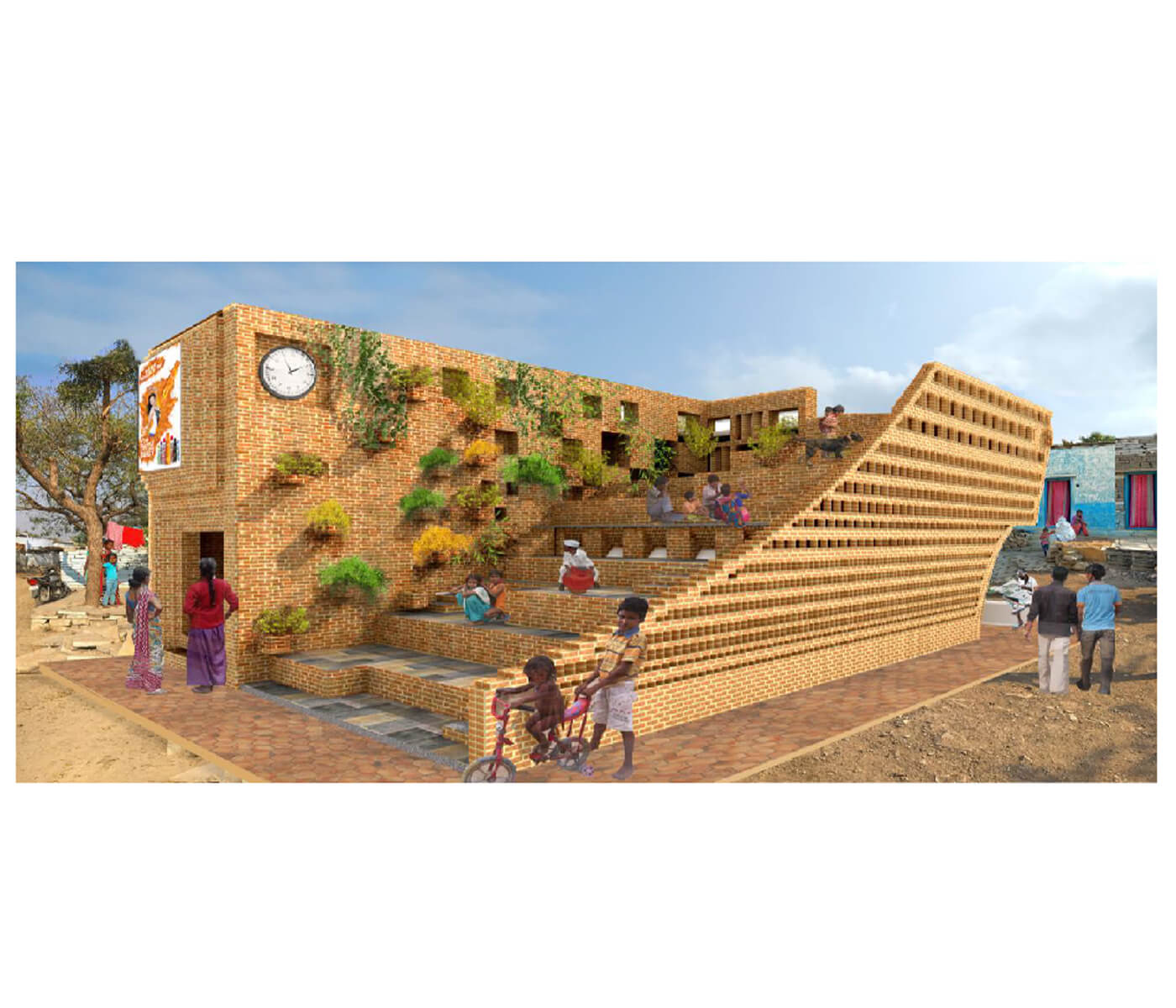
The focus was to create architectural typologies that are socially sustainable and are integrated in everyday of people.The Manifesto also addresses hybrid program to be added, Recycling technology, maintenance model, structural system & building Materials for Public Toilets.
The Design is used as a medium to transform these mundane programs of everyday into holistic experiencesthat offer a good quality of life to all the citizens.
“This Engagement with local bodies have begun a new set of Projects where Public Toilets are just a beginning point”
Currently all of these projects are under construction in 7 cities of Rajasthan at 35 sites. We continue to travel with the exhibition to various cities of India.
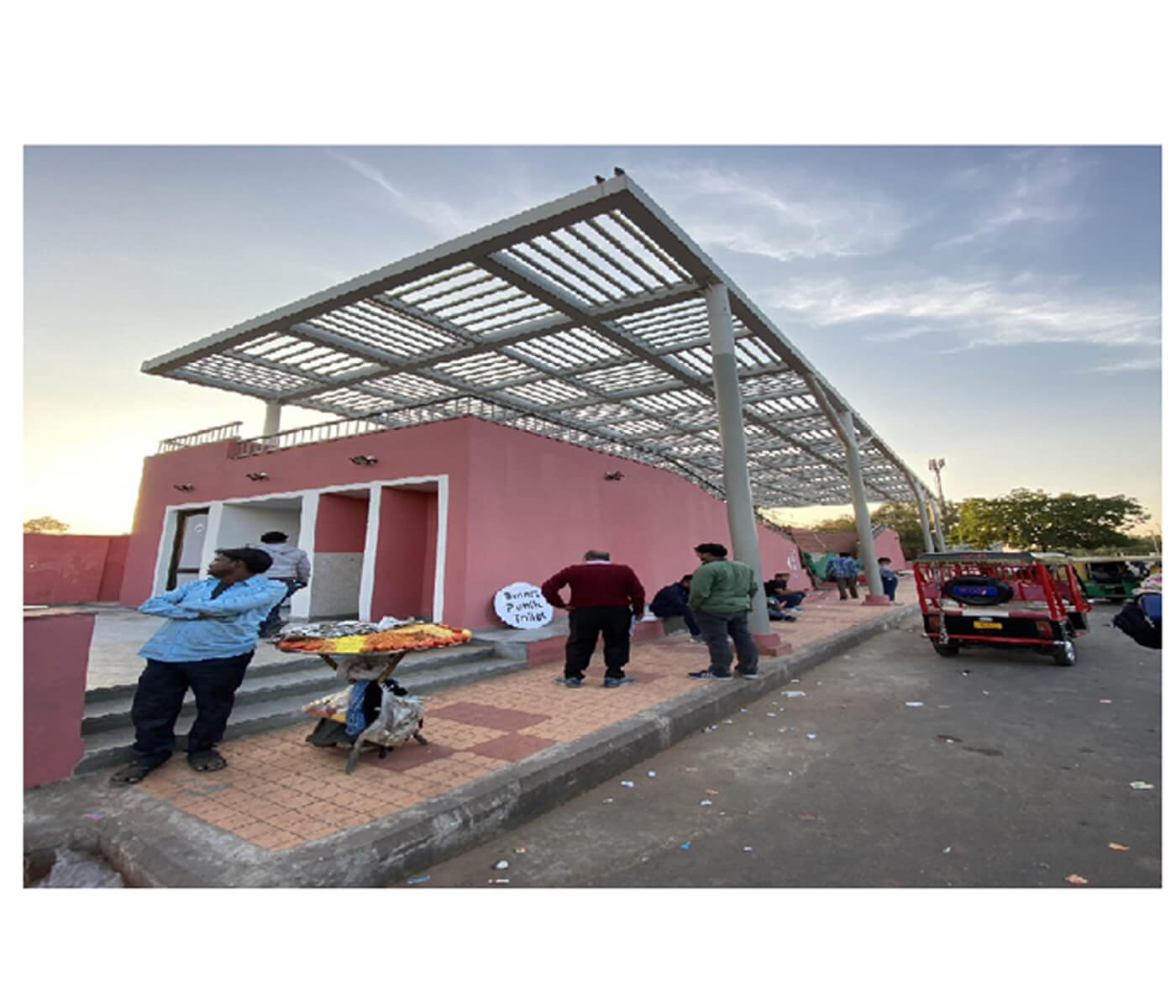
By now We have been to Jaipur, Jodhpur, Udaipur, Kota, Ajmer, Bikaner, Kota, Bharatpur, Goa, Vijayawada, Hyderabad, Warangal, Rajkot, Kolhapur, Satara & Sangli. We have presented this work to Municipal Commissioners, Chief Ministers, District Collectors, Mayors, and Local Bodies Officers.
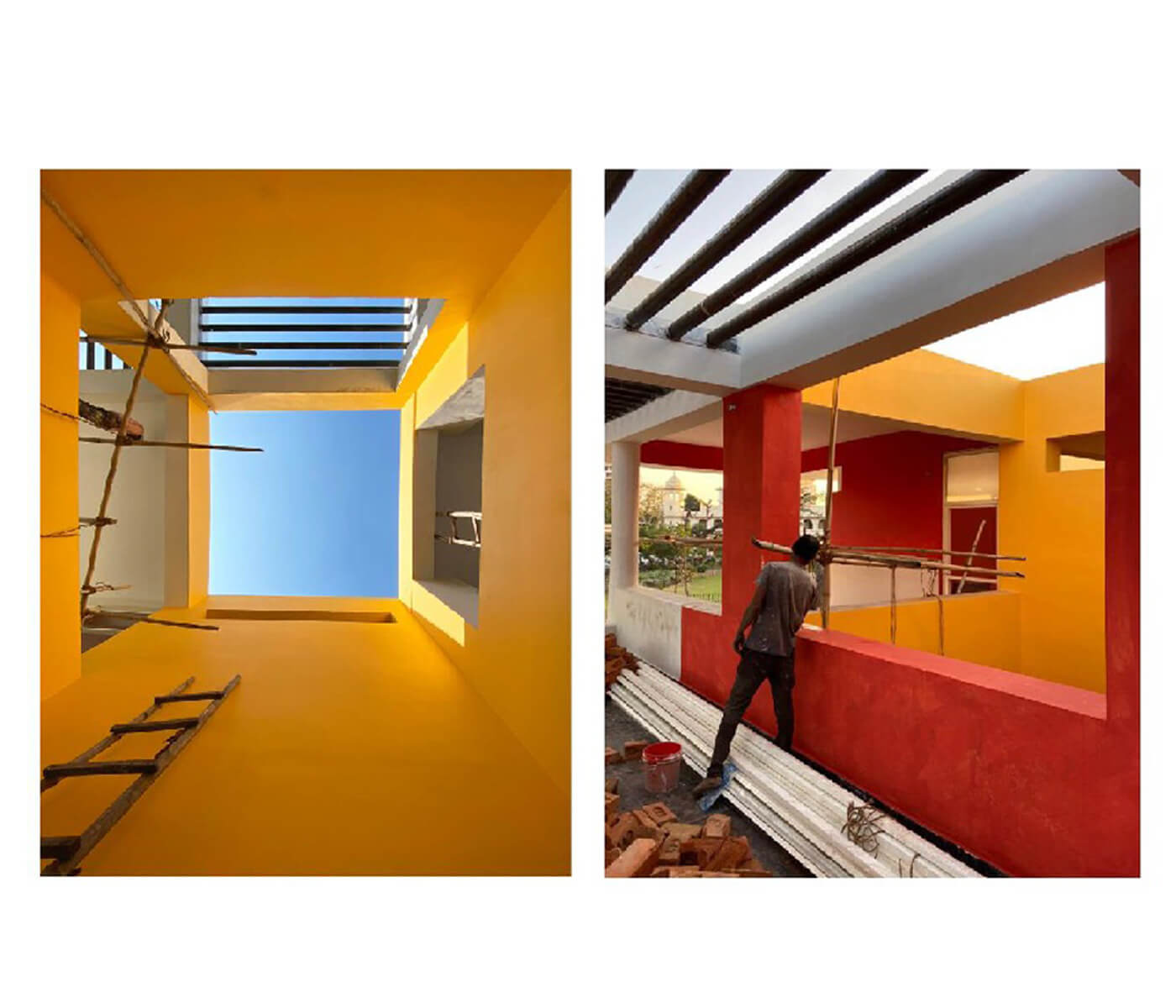
This Engagement with local bodies have begun a new set of Projects where Public Toilets are just a beginning point. In few cities they are planned as Flood Resilient Infrastructures, where people can gather during Floods. In Few placesthey are planned as Annex to Jilla Parishad Building or Extension to Rural Schools.
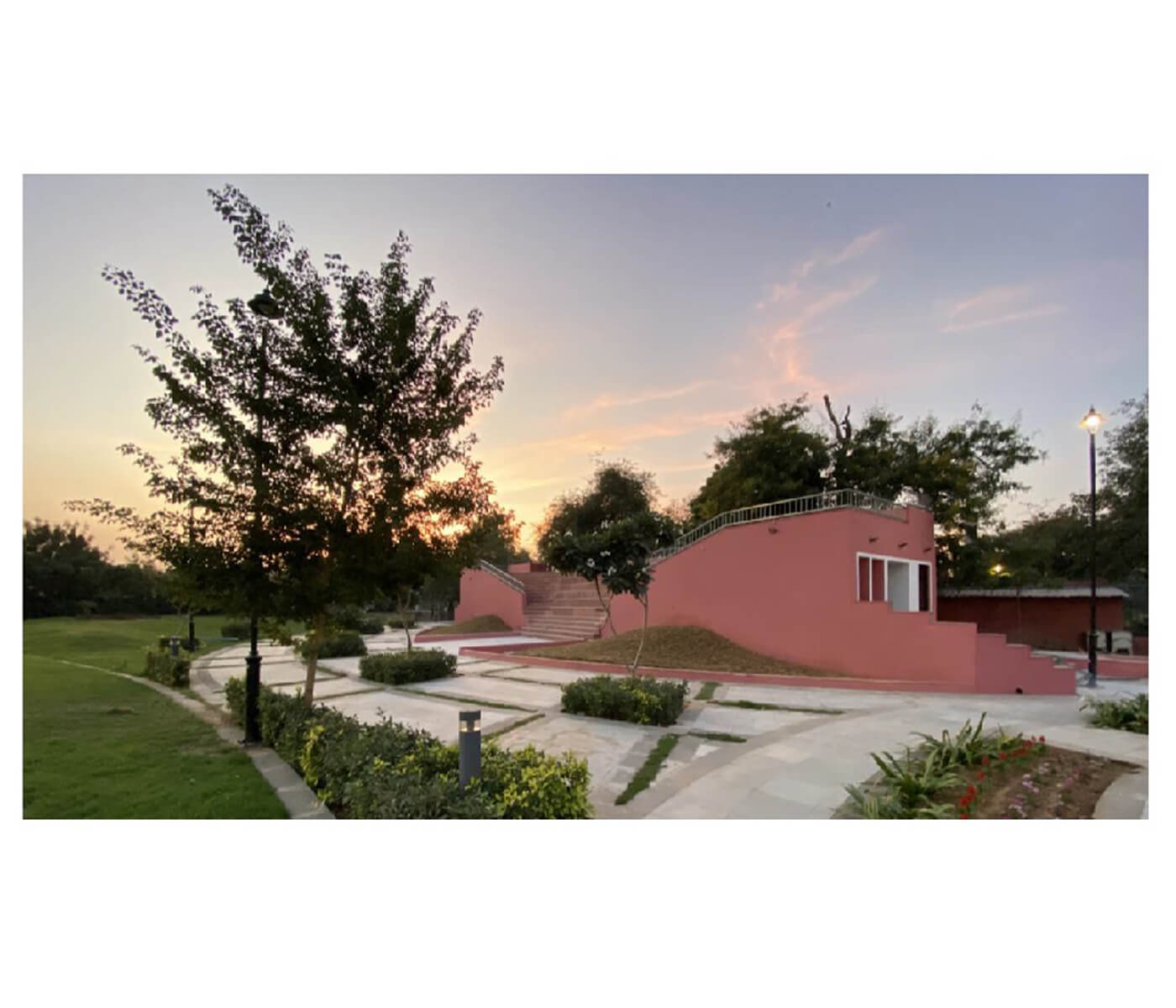
Wherever they go & whatever form they take, they continue to make infrastructural building more joyful for people. Here we see future of these mundane & boring functions as Vibrant & Joyful Public Buildings.
Mayuri Sisodia
DESIGN FIELD
Architecture, Urban Design and Strategy
LOCATION
Mumbai, India
ABOUT
“Mayuri Sisodia is an Architect & Urban Designer based in Mumbai. She is Co- founder of MAD(E) IN MUMBAI, a design practice involved with the discipline of Architecture and Urbanism. The mission of her studio lies in transforming every day mundane experience of our cities into holistic and fulfilling experience through the medium of Design. Her Studio has received Social Innovator’s Award for the year 2016 from Mr. Narendra Modi, Prime Minister of India, Ministry of External Affairs and NITI Aayog. Recently, the Studio won a National Competition to design Historical ‘Grant Road’ of Mumbai organised by MCGM & Mumbai Street Lab. The studio has won many other national & international competitions that include Flood resilient housing competition organised by ISET, Revitalisation of Banganga Crematorium by Rotrary Club & Rethinking Kalanagar Traffic Junction by BMW Guggenheim Lab. Currently her studio is involved with construction of 35 sanitation infrastructure projects in Ajmer, Bharatpur, Bikaner, Jaipur, Jodhpur, Udaipur & Kota under Swachch Bharat Abhiyaan.”


